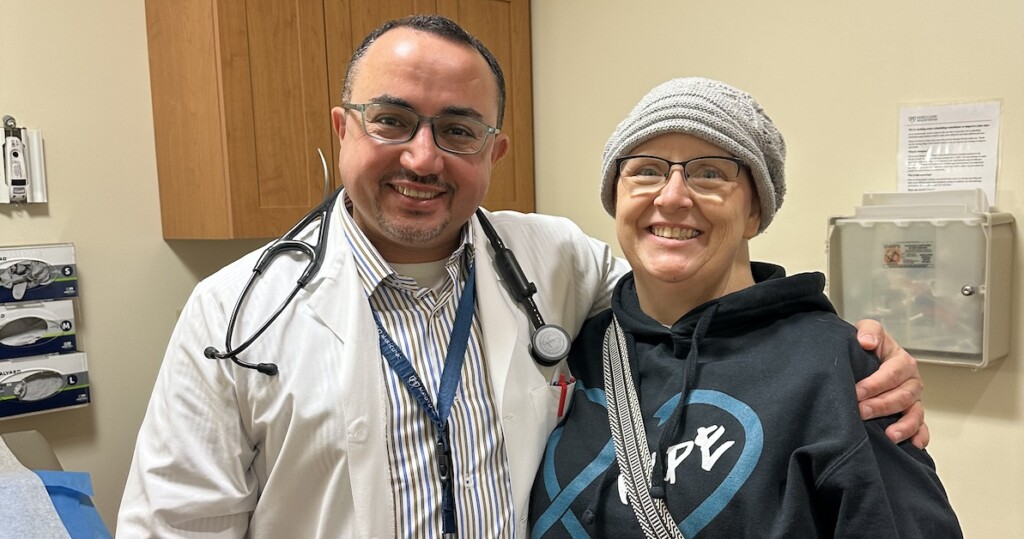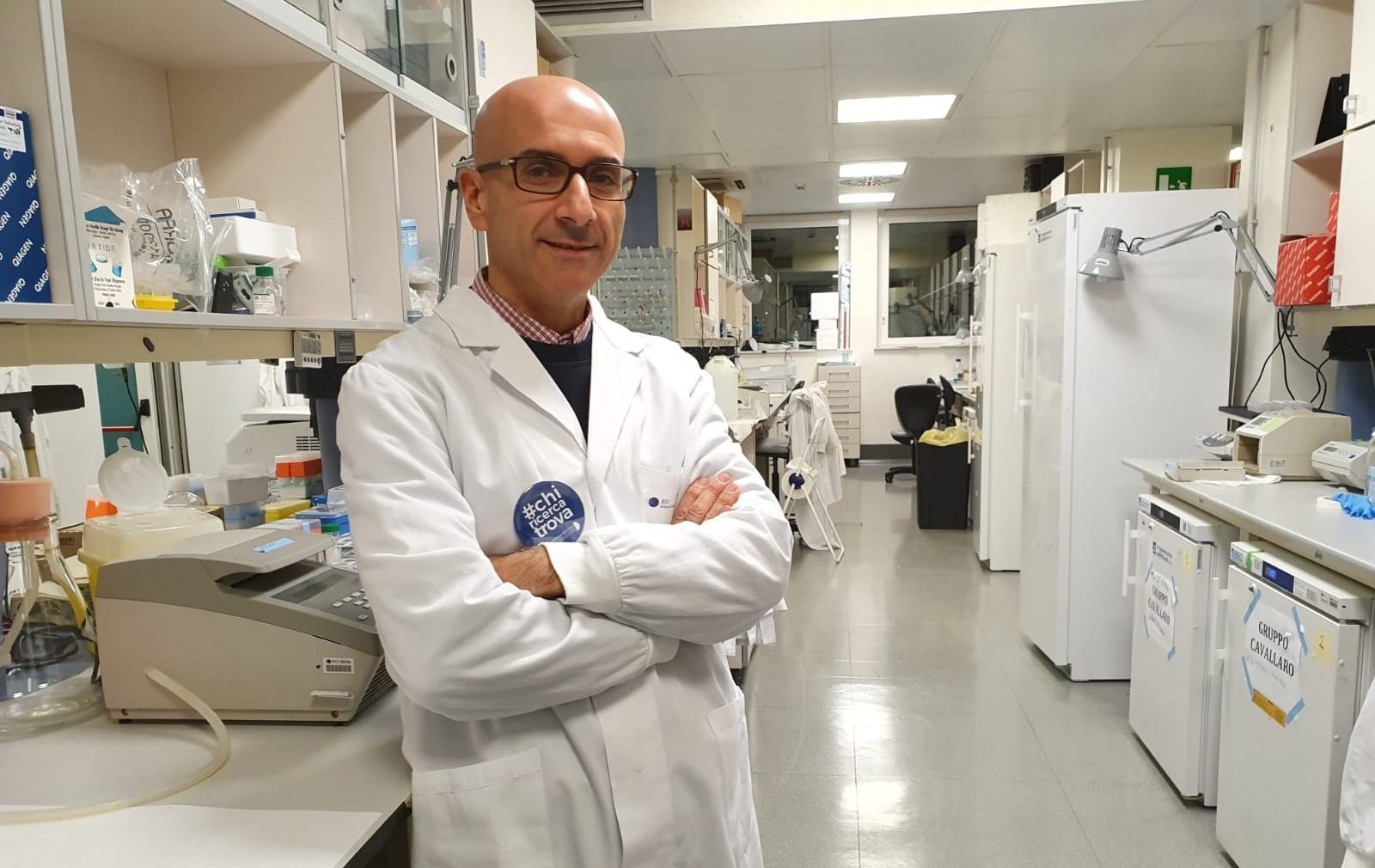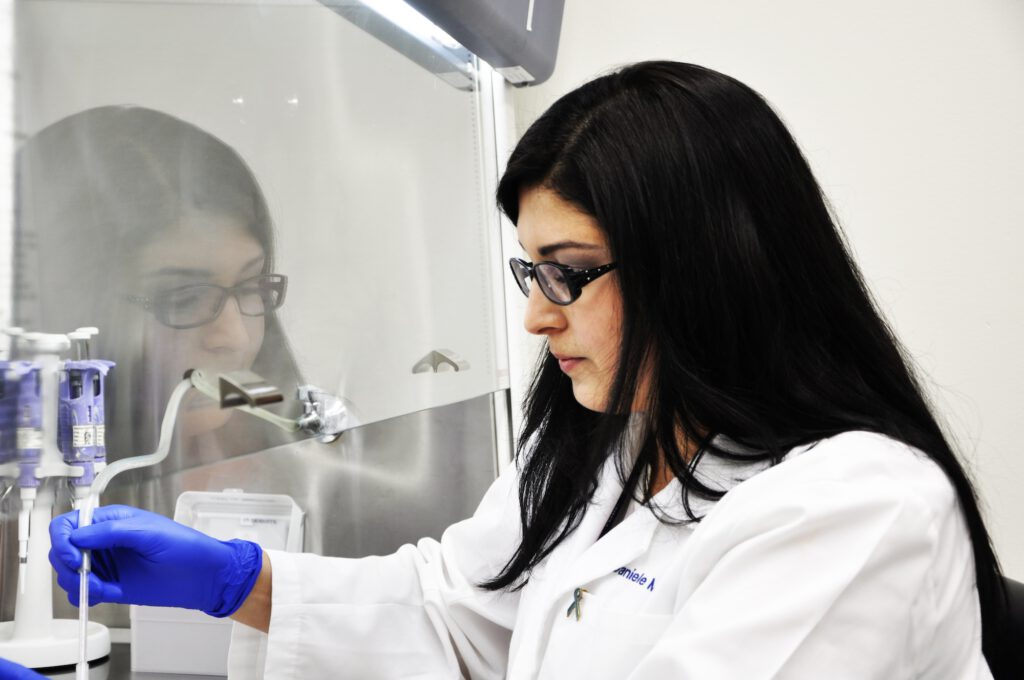
Find a Doctor
Locate gynecologic oncologists, specialists, and treatment centers in your area.
Vulvar cancer begins in the vulva, the outer part of the female genitals. This rare cancer comprises about 6% of gynecologic cancer diagnoses.
There is no standard screening tool for vulvar cancer. Routine pelvic exams and awareness of possible symptoms can improve the likelihood of earlier detection and more effective treatment.

Use OCRA’s online Clinical Trial Navigator, a tool that helps you easily find vulvar cancer clinical trials near you. Search by cancer type, treatment history, location, and more.
Different types of vulvar cancer can have different symptoms.
Pre-cancerous changes of the vulva, called vulvar intraepithelial neoplasia (VIN), may be asymptomatic or may cause itching that does not go away or improve. Individuals may also experience changes in the skin of the vulva with areas that are thicker, or a different color from the surrounding area.
Invasive squamous cell cancer of the vulva may also be asymptomatic or may present with similar symptoms, which can include:
Melanomas can also develop on the vulva. Symptoms of vulvar melanoma can include:
Rare vulvar cancers include Bartholin gland cancer, which may be associated with a distinct mass or lump on the side of the vaginal opening. Most often, a lump of this type is caused by a Bartholin gland cyst, which is not cancerous.
Paget disease is a rare cancer that can develop on the vulva. Paget disease may be associated with soreness and a red, scaly area on the skin.
There are several risk factors that can increase a person’s likelihood of developing vulvar cancer, including:
If a doctor suspects vulvar cancer, the first step is often to perform a physical and pelvic exam, along with a discussion of the patient’s medical history. After these steps, if the doctor believes a patient may have vulvar cancer, they will perform a biopsy. A biopsy is the only way to confirm a diagnosis of vulvar cancer.
Stages of vulvar cancer range from stage 1 (1) to stage 4 (IV). In general, a lower stage refers to vulvar cancer that is localized, whereas a higher stage means that the cancer has spread. Vulvar cancer staging can be complex, with doctors basing the exact stage on the size of the tumor, the spread to nearby lymph nodes, and the spread to distant lymph nodes or parts of the body. The stage of cancer will help guide plans for care and treatment. Learn more about stages of vulvar cancer.
The main type of treatment for vulvar cancer is surgery to excise the lesion and a small amount of surrounding tissue. This may also involve resection of lymph nodes in the groin to look for evidence that the cancer has spread. If cancer has spread, more extensive surgery may be needed, and may be followed by radiation and chemotherapy. Learn more about treatment for vulvar cancer.
If cancer comes back after treatment, it is called a recurrence. It is sometimes challenging to determine whether a person has a recurrence of a prior vulvar cancer or whether a new lesion has developed on the vulva. Close surveillance can help identify evidence of new lesions or recurrence early, which improves outcomes.
The overall five-year relative survival rate for those diagnosed with vulvar cancer is 71%. Survival rates differ based on when the cancer was first diagnosed and treated. The five-year relative survival rate for localized vulvar cancer, when the cancer is only in the vulva and has not spread, is 86%. The five-year relative survival rate for vulvar cancer with regional spread, to nearby lymph nodes or tissues but not distant organs, is 53%. The five-year relative survival rate for vulvar cancer with spread to distant parts of the body is 19%.
The American Cancer Society estimates that in 2024 in the U.S., about 6,900 cancers of the vulva will be diagnosed, and 1,630 women will die of vulvar cancer. Vulvar cancer accounts for <1% of cancers in women, and women have about a 1 in 133 chance of developing vulvar cancer in their lifetime.
For more detailed information about vulvar cancer, visit the American Cancer Society.

Locate gynecologic oncologists, specialists, and treatment centers in your area.

Explore new treatments for ovarian and gynecologic cancers.

Get email updates about research news, action alerts, and ways to join the fight.